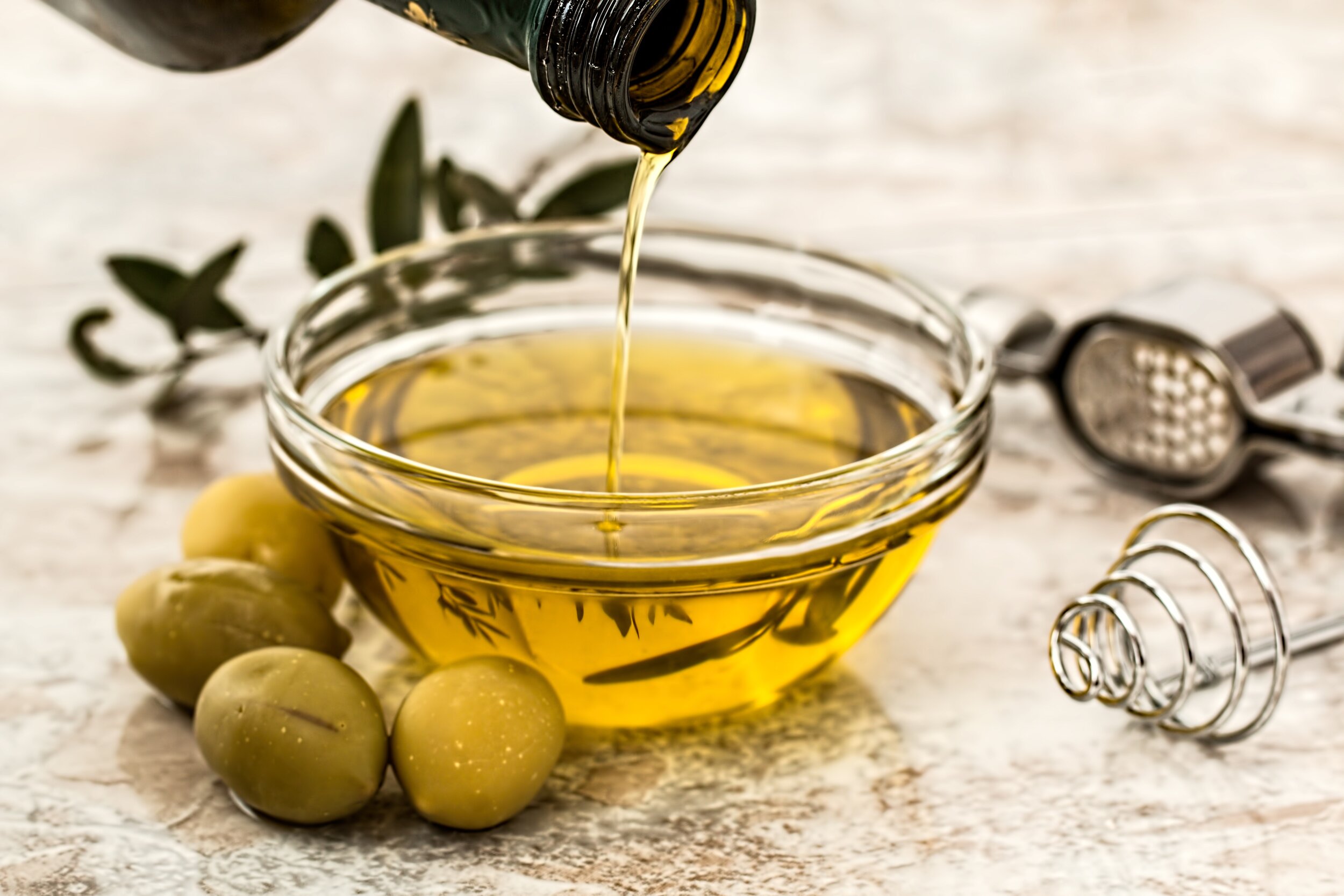Superfood Breakdown: Extra Virgin Olive Oil
LIVE WELL
Superfood Breakdown: Extra virgin olive oil
Abbot’s Butcher exclusively uses extra virgin olive oil in our products—never any vegetable or canola oils. Extra virgin olive oil (EVOO) is not only unprocessed and retains most nutrients from the olive plant, making it a healthier option than other oils, it has an unprecedented number of other health benefits.
In the health-conscious world, fats are not typically celebrated. The stigma against fatty foods has caused people to veer away from fats like oil and butter, but not all fats are harmful. An increasing number of people are becoming aware of the many benefits that extra virgin olive oil brings to the table.
Here are some characteristics that led extra virgin olive oil to be deemed a superfood:
Healthy Fats
First, it contains monounsaturated fatty acids—healthy fats that are crucial to bodily functions such as absorbing nutrients and attaining vitamin E. Both omega-3 and omega-6 fatty acids can be found in EVOO, and the former plays a significant role in preventing cardiovascular disease. It is usually found in fatty fish like salmon, so extra virgin olive oil acts as a plant-based source of omega-3.
EVOO also consists of 55-85 percent oleic acid, which is an omega-9 fatty acid that aids in oxidative resistance and degradation. With a large oleic acid content, EVOO has higher nutritional value and longer shelf life than oils with a lower oleic acid content.
Polyphenols
Canola and sunflower oil may also have high amounts of monounsaturated fatty acids — but. what makes EVOO crowned the healthiest oil is its disease-fighting components like polyphenols. These polyphenols act as antioxidants, preventing cellular damage from free-radicals and inducing the body to go into an anti-inflammatory condition; they also strengthen the body’s immune system, while also contributing to olive oil’s taste and oxidative stability. The refining process can drastically reduce the number of polyphenols, so EVOO’s unrefined nature ensures an abundant amount of polyphenols.
The Blue Zones
In most of the world’s healthiest populations called Blue Zones, extra virgin olive oil is heavily consumed. These zones have the highest concentration of people who have lived more than 100 years, and thus, have been studied extensively to identify the secret to longevity. The Mediterranean diet has been the prominent diet in these areas, which places a higher focus on healthy plant foods than animal foods. Several of the world’s Blue Zones consume about a liter of EVOO a week. Coincidence? Probably not.
The PREDIMED Study
The Spanish PREDIMED study aimed to find a relationship between the prevention of cardiovascular disease and the consumption of olive oil through the Mediterranean diet. Participants, who were all individuals with a high risk of heart disease, were either told to follow the Mediterranean diet supplemented with nuts/extra virgin olive oil or a low-fat diet that acted as the control. The results showed that those that ate meals according to the Mediterranean diet were 30 percent less likely to suffer from a cardiovascular death. From the study, researchers concluded that olive oil consumption — especially extra virgin olive oil — could potentially reduce risk of cardiovascular disease. They also found a correlation between brain cognition and the Mediterranean diet by using cognitive tests on the participants throughout the study. Factors like memory, intelligence, language, and attention were measured in these tests and shown to be better in those who were on the Mediterranean diet than on the low-fat one. It was also thought that a Mediterranean diet could help prevent mental decline in brain function that happens when one gets older.
A Common Myth—Dispelled
People tend to shy away from extra virgin olive oil as their cooking oil of choice because they have this preconceived notion that it is not appropriate for cooking. The belief that olive oil had a low smoke point and heating it would cause the release of harmful compounds permeated the realm of cooking for a while, but that has been proven to be false.
The smoke point of extra virgin olive oil is 350 to 410 degrees Fahrenheit; for comparison, the smoke point of butter is 300 degrees. Smoke point merely refers to the temperature at which the oil begins to burn and emit a bluish flame. Oxidative stability, how resistant the fats are to reacting with oxygen, is the best predictor of a cooking oil’s stability—not smoke point. A study done with 10 of the most commonly used cooking oil demonstrated that extra virgin olive oil had the greatest oxidative stability and produced the lowest amounts of harmful compounds and byproducts when heated. Thus, extra virgin olive oil is completely fine for heat-intensive cooking.
Next time you’re shopping, ditch the canola and vegetable oil and reach for the extra virgin olive oil instead. One bottle of EVOO can go a long way in improving heart and brain health—whether you decide to make a salad dressing or bake an olive oil cake, just know that your whole body will thank you in the end.

